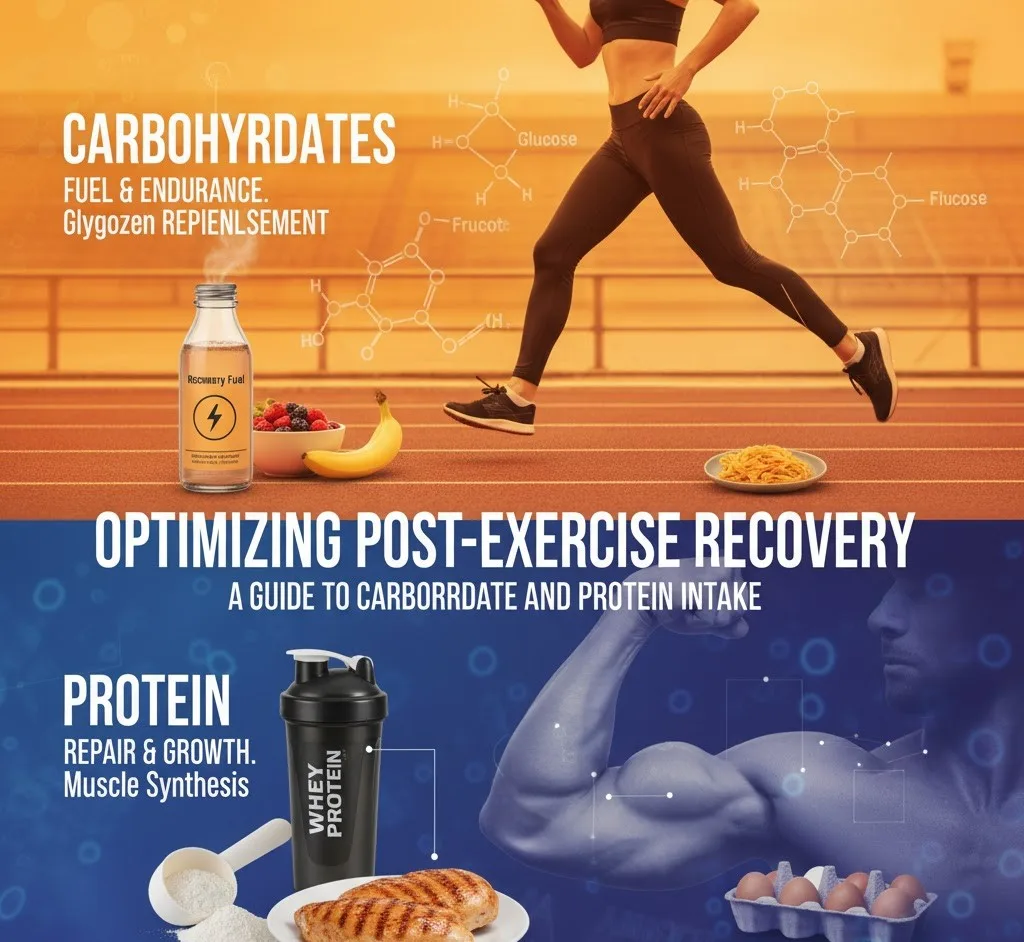Proper nutrition immediately following exercise is crucial for an athlete's recovery, performance in subsequent sessions, and long-term adaptation. The key focuses are replenishing energy stores and repairing muscle tissue. Based on current scientific recommendations, here is a detailed guide on optimizing the intake of carbohydrates and protein post-workout.
Carbohydrate Intake for Glycogen Replenishment
The primary goal immediately after an intense or prolonged workout is to rapidly refill muscle and liver glycogen stores. Glycogen is the stored form of glucose and the body's primary fuel source during exercise.
Optimal Dosage and Timing
Current guidelines recommend that athletes consume a high quantity of carbohydrates in the initial hours post-exercise:
-
Dosage: 1.0 to 1.2 grams of carbohydrate per kilogram of body weight per hour ().
-
Timing: This rate of intake should be maintained for the first four hours following the session.
This immediate consumption is critical because delaying intake, even by just two hours, can significantly slow the rate of muscle glycogen replenishment. This period is often referred to as the "glycogen window" when muscle cells are most receptive to absorbing glucose.
The Benefit of Glucose and Fructose Combinations
While glucose is the primary sugar used by muscles, consuming a combination of different carbohydrates can further enhance recovery:
-
Mechanism: Consuming glucose and fructose simultaneously is more beneficial than glucose alone because they use different intestinal transporters. This allows for a higher total rate of carbohydrate absorption from the gut.
-
Benefits:
-
Minimized Distress: Using multiple transporters helps optimize carbohydrate uptake and minimizes gastrointestinal distress.
-
Liver Glycogen: This combination is particularly effective at restoring liver glycogen, which, if properly topped up, is associated with an increase in endurance capacity in the athlete's next training session.
-
Protein Intake for Muscle Repair
The second critical component of post-exercise nutrition is protein, which provides the amino acids needed to repair damaged muscle fibers and build new tissue—a process called Muscle Protein Synthesis (MPS).
The Optimal Protein Dose
To maximize the rate of Muscle Protein Synthesis (MPS) after exercise, the following is recommended:
-
Dose: Consume 20 to 40 grams of high-quality protein.
This dose provides a sufficient amount of amino acids, particularly leucine, to trigger the maximum anabolic response in the muscle.
Role of Protein Type (Whey vs. Casein)
Not all proteins are absorbed and utilized at the same speed, which is why the type of protein consumed matters:
-
Whey Protein: This is the most highly recommended post-workout protein because it is rapidly digested and rich in leucine. It stimulates MPS more quickly and effectively than casein or soy protein.
-
Casein Protein: In contrast, casein is digested and absorbed slowly, resulting in a sustained release of amino acids. This makes it less ideal immediately post-workout but beneficial for longer recovery periods, such as before sleep, to support overnight muscle repair.
Combining Carbohydrates and Protein
The necessity of adding protein to a carbohydrate recovery drink depends entirely on the total amount of carbohydrates consumed.
-
Condition for Benefit: Adding protein to carbohydrates only improves glycogen replenishment when the amount of carbohydrates consumed is suboptimal (i.e., less than ).
-
Sufficient Carbohydrates: When an athlete consumes an adequate and sufficient amount of carbohydrates, adding extra protein does not provide a greater effect on muscle glycogen replenishment.
-
Additional Benefits: While protein may not always boost glycogen stores, it still provides the benefit of stimulating MPS and other advantages, such as helping to create a positive nitrogen balance essential for muscle growth and repair.
In summary, athletes should prioritize a timely, high-dose combination of glucose and fructose post-exercise for maximal energy replenishment, followed by of a fast-digesting protein like whey to kickstart muscle repair.

